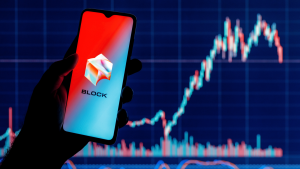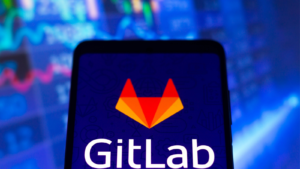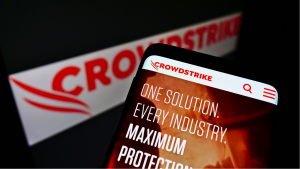The ‘Magnificent 7’ stocks have garnered a lot of attention in 2023 for pulling equities out of a bear market and into a bull run. Headlines have seized upon their colossal influence noting that they are largely responsible for the turnaround. Those firms include Apple (NASDAQ:AAPL), Alphabet (NASDAQ:GOOG,GOOGL), Amazon (NASDAQ:AMZN), Microsoft (NASDAQ:MSFT), Meta (NASDAQ:META), Nvidia (NASDAQ:NVDA), and Tesla (NASDAQ:TSLA), and were up by $3.35 trillion by early June while the 93 other tech companies in the Nasdaq 100 were up a mere $635 million.
The numbers are impressive. Yet investors can’t help but wonder if other growth stocks are ripe with opportunity. The logic is simple and sound: There are plenty of other strong growth firms worth considering and a rising tide should pull all ships higher.
Applied Digital (APLD)

Applied Digital (NASDAQ:APLD) stock represents an early-stage data center firm that is growing rapidly and boasts impressive metrics relative to its age. It is a name to consider in the field of high-performance computing (HPC).
The company garners all of its sales as hosting revenue. Those revenues reached just above $1 million dollars for the 3-month period that ended Feb. 28, 2022. A year later those revenues increased to above $14 million during the same period. Equally as important, Applied Digital was able to derive a $3.56 million profit from those revenues proving that its business model is solid and well-executed.
Perhaps more impressive, Applied Digital is rapidly growing to accommodate AI services into its product mix. A few weeks ago the company announced that it had secured its second and largest to date customer for its AI Cloud service.
Sai Computing, Applied Digital’s wholly owned subsidiary, landed a contract worth up to $460 million over 36 months for AI Cloud services. Therefore, it is reasonable to anticipate that Applied Digital will continue to grow at a rapid pace that is likely to push share prices higher.
Progyny (PGNY)

Progyny (NASDAQ:PGNY) provides fertility benefits management to employers and manages all stages of the fertility treatment process. The company currently covers 5.4 lives and management believes that’s just the beginning of the opportunity.
That’s a reasonable assertion given an aging U.S. population that is choosing to have children later. As a result, the fertility services market is expected to grow by more than 16% annually between 2022 and 2031.
Growth has been even more rapid at Progyny which saw Q1 revenues increase by 50% year-over-year. Progyny reported its highest-ever figures for revenue, gross profit, and EBITDA during any quarter in its history. The firm also generated its highest-ever cash flows in the first quarter. Progyny produced a net gain a year ago and that net gain increased in Q1 by 255% reaching $17.678 million.
In short, Progyny is one of the faster-growing fertility firms in what is a booming market with lots of growth ahead. Record growth, profitability, and operations within a market with a long runway all mean Progyny can continue to grow quickly.
SolarEdge (SEDG)

Investors in SolarEdge (NASDAQ:SEDG) stock have a lot to be impressed by and good reason to be optimistic. Wall Street is certainly optimistic about SolarEdge and expects shares to rise by another $90 beyond their current price.
It’s reasonable that Wall Street should be high on the company given the strength of the company’s most recent earnings report. Sales increased by 44% to $943.9 million during the first quarter. Solar sales accounted for $908 of the total $943.9 million in revenues and increased by 49% on a year-over-year basis.
However, SolarEdge has shown signs of slowing growth. Prior quarter growth rates are lower with sales having grown by 6% since the fourth quarter. Solar sales growth was slightly better at 9% but still much less than the year-over-year growth.
This isn’t necessarily a bad sign overall. SolarEdge’s net income increased from $33 million to $138 million. It is maturing and providing good income. It can still capture new growth elsewhere but for now investors should be thankful for its maturation and income.
Block (SQ)

Block (NYSE:SQ) is one of the more prominent fintech stocks around. Its businesses touch on a wide swath of financial services, but its profits are driven by Cash App and Square. Cash App accounted for $974 million of the company’s $1.71 billion in gross profits during the first quarter. Square accounted for the remaining $770 million.
The company has grown from Point of Sale (POS) leader to mobile payments to buy-now-pay-later and more. It continues to grow rapidly even as it has reached a massive scale. Revenues reached $4.99 billion in Q1. That’s a large-scale firm by most standards and one that grew by 26% year-over-year.
What might be surprising to some investors is the fact that Block, despite making so much money, still recorded a net loss of $16.84 million during the quarter. There’s a positive takeaway here, though: Block’s net loss a year prior exceeded $204 million. Watch out once Block figures out how to generate gains. And that could occur very soon.
GitLab (GTLB)

GitLab (NASDAQ:GTLB) helps organizations plan, build, secure, and deploy software quicker. It is what is called a DevSecOps platform that offers an approach to design software with a complete IT lifecycle in mind.
The company has certainly found customers for its product/service mix as Q1 revenues grew by 45% to $126.9 million.
Customers with annual recurring revenues (ARR) of $5,000 or more increased by 43% while customers with an ARR above $100,000 were up by 39%. ARR is particularly important to software firms like GitLab that depend heavily on subscriptions for revenues. Convincing customers to buy is the most difficult part, and once onboard they can be incrementally upsold. That is precisely what GitLab has done based on its net retention rate of 128%. That means GitLab is retaining and expanding its customer base.
GitLab is expected to post sales between $129-130 million in Q2. The company reported $101 million in revenues during Q2 last year. Growth is likely to be closer to 30% rather than the 45% growth in Q1. However, 30% growth is still phenomenal and worth investing in.
Crowdstrike (CRWD)

There’s no denying that Wall Street remains highly upbeat on Crowdstrike (NASDAQ:CRWD) stock. The consensus shows that the firm’s shares are worth $175 but still trade at $150.
The cybersecurity firm has seen its shares increase in value by nearly 50% in 2023. They currently trade for $150 but the good news there is that they traded above $200 less than a year ago. That suggests there is further room to rally this year.
Revenues grew by 42% in Q1. That was exactly in line with ARR growth of 42% during the same period. Those figures are also suggestive of the idea that CRWD shares can grow further this year.
Like most tech firms, Crowdstrike is telegraphing the idea that AI represents an incredible opportunity. Its CEO noted as much in the earnings release which should signal the market that Crowdstrike is a name in the subject. What is perhaps most impressive about Crowdstrike is the fact that it reported a net income this quarter of $0.5 million. That represented a significant improvement over the $31.5 million net loss a year prior.
Albemarle (ALB)

Albemarle (NYSE:ALB) shares have boomed during the pandemic era, with the stock more than tripling in value. The lithium producer has become the go-to name for investors seeking to get on board with the EV boom.
That has been a scary ride at times as lithium prices plummeted late in 2022. That sent prices tumbling and investors headed toward the door. However, lithium remains integral to current generation EV battery production and will also feature in future solid-state battery production. Share prices have rebounded and have reached a stasis of sorts.
That means it’s time to revisit Albemarle’s recent and frankly incredible growth. Sales increased by 129% reaching $2.6 billion. Net income grew by 389% reaching $1.2 billion. Albemarle isn’t a tech company like each of the ‘Magnificent 7’. Instead, it offers growth in a commodity that is fueling a booming EV industry. Lithium growth isn’t slowing anytime soon and that means Albemarle will continue to grow steadily
On the date of publication, Alex Sirois did not have (either directly or indirectly) any positions in the securities mentioned in this article. The opinions expressed in this article are those of the writer, subject to the InvestorPlace.com Publishing Guidelines.
